Pictures of Working in the Old Days Show Just How Different Things Were
It’s a wonder they got any work done at all!
There are plenty of tasks any of us would rather not do at work. Writing emails, filing papers, or even manual work like painting. But, when compared with how these things used to be done at many jobs our tasks today are made so much easier (and safer) by modern standards and modern equipment. Here are just a few images that show how different going to work used to be in the old days.
Postal Stamps Perforated By Hand
Women working to cut sheets of postal stamps had to wear protective shields so they could focus on the extremely tedious and fiddly work of perforating stamps. The glare of overhead lights was avoided with these makeshift visors. Can you imagine?!
It wasn’t until electronic sensors and more sophisticated registration marks were invented that this whole process was simplified and the more wearisome elements of making postal stamps were eliminated.
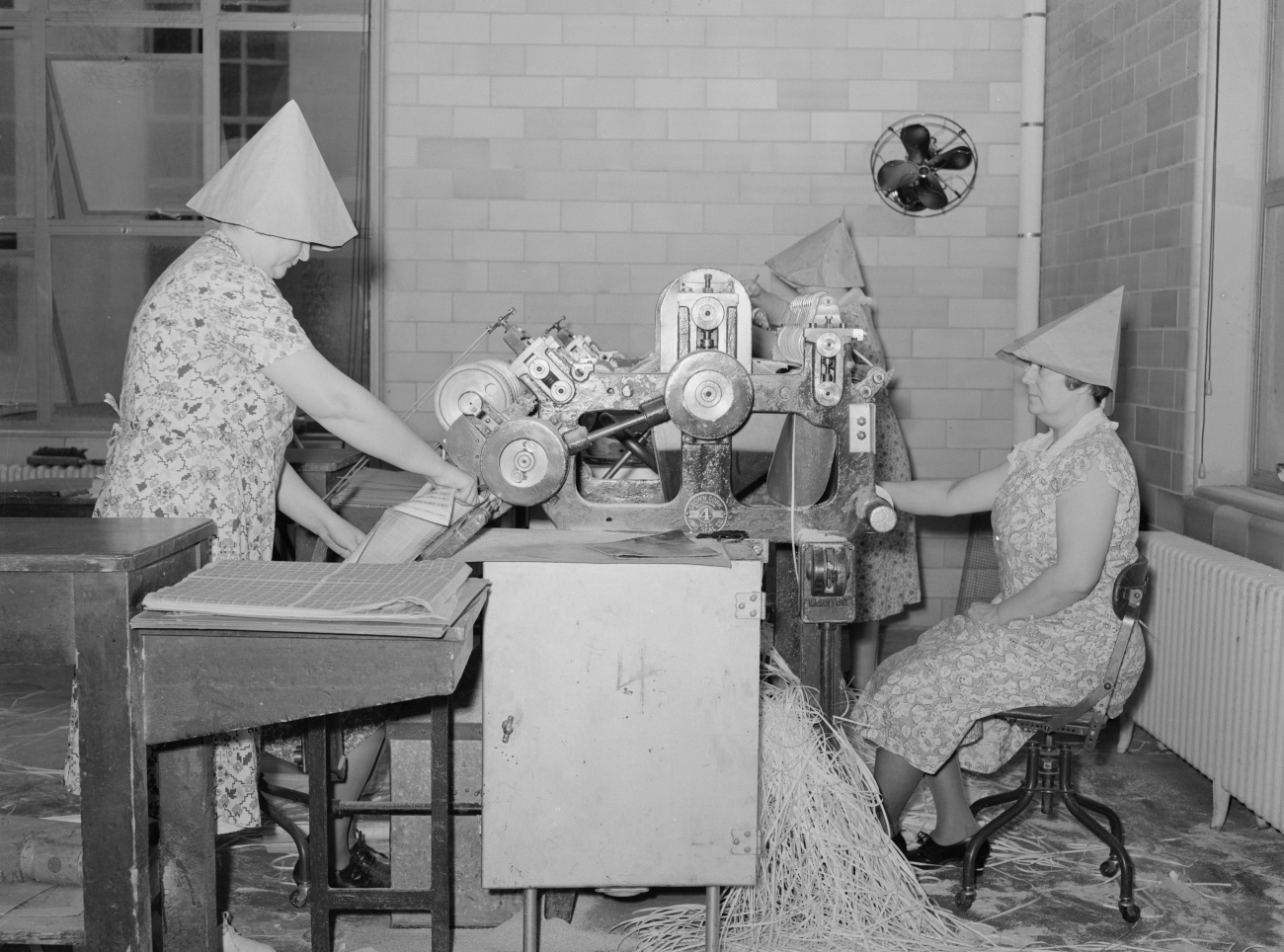
Washroom Attendant
Back in the day the washroom attendant would have offered fresh towels and maybe perfume, but did you know that they had to buy these things first? The person using the service then “rented” items from the attendant for a fee. In this case antacids, nail polish, towels, hand creams and much more was on offer. Later models of this service operated on more of a tip program, but now an attendant in a restroom is pretty rare.
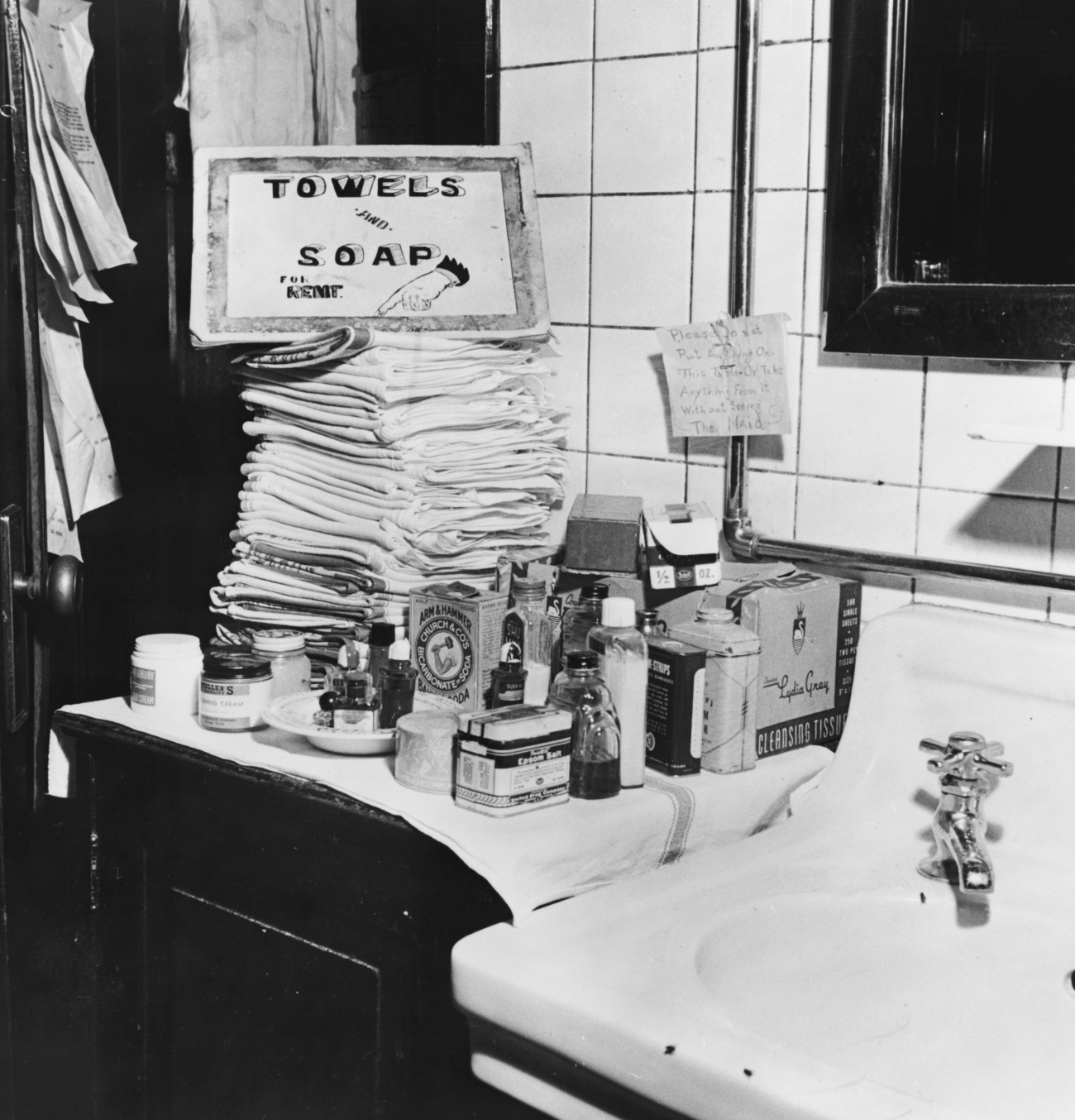
Wacky Safety Precautions
This plastic bra to prevent accidents was demoed during World War II when women went to work in the factories. It may seem comical to us today and it never did catch on. But, this was the first time since World War I that women had been working in factories in such large numbers and many higher ups feared their hair, jewelry, shoes, and feminine bodies and behavior would cause accidents and catastrophes left and right.
A number of safety promotions were launched, including a film reel with Hollywood star Veronica Lake. Some of these campaigns were intended to grab people’s attention through hyperbole. But, factory safety practices weren’t something that most women were familiar with since they previously had mainly worked as homemakers or as clerks and secretaries up until that point.
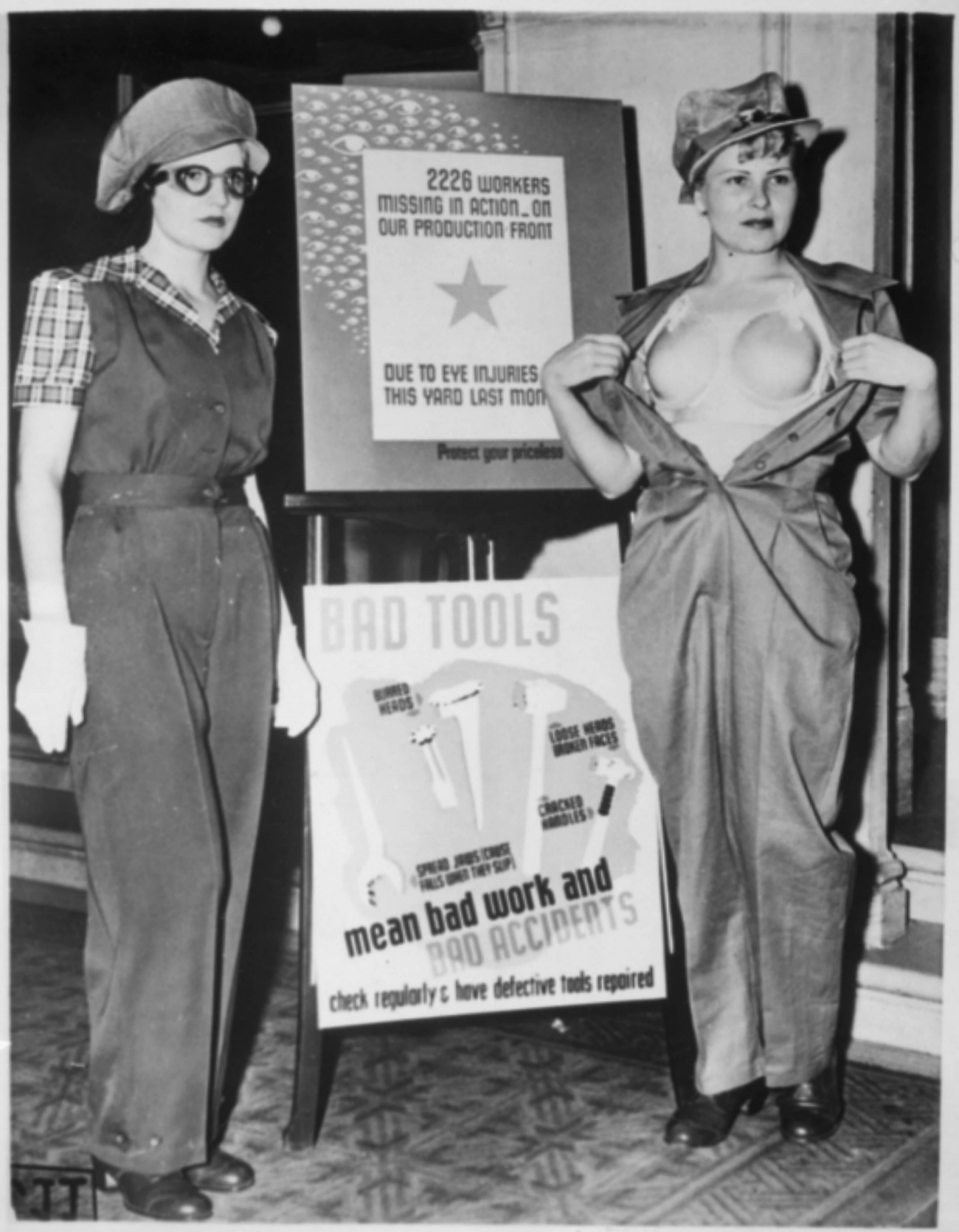
Roller Skating in the Office
During WWII some clerks working in large facilities doing war work used roller skates to make their journey from one part of the building to another shorter. Before email each memo had to be hand delivered and skates certainly made it easier, as long as one was a good skater.
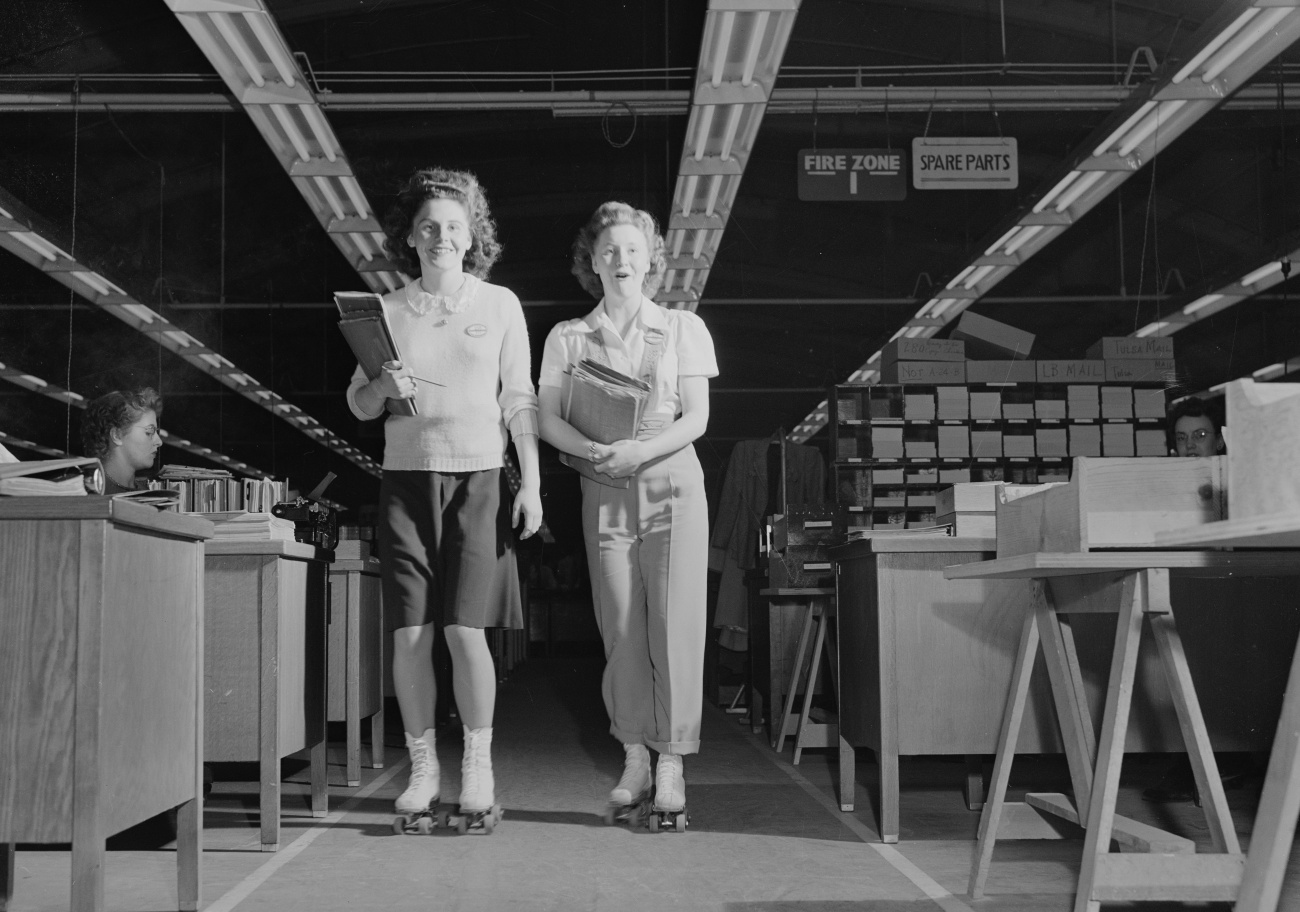
Massive Switchboards
This high tech switchboard outfit had head sets for hands free talking and a really large board. The sign at the top shows which countries they’ll service in North and South America and a series of 3 lights for some of the biggest overseas and domestic cities like Paris and London. Day and night switchboard rooms like these were filled with telephone operators, all of whom were women. Like paperboys or newsboys, teenaged boys were the first operators. But, they were rowdy and unprofessional and so it was policy to only hire women for many years. It wasn’t until the 1970s that more men were hired on in greater numbers.
In 1974 The New York Times published that around 1 in 20 operators at that time were male.
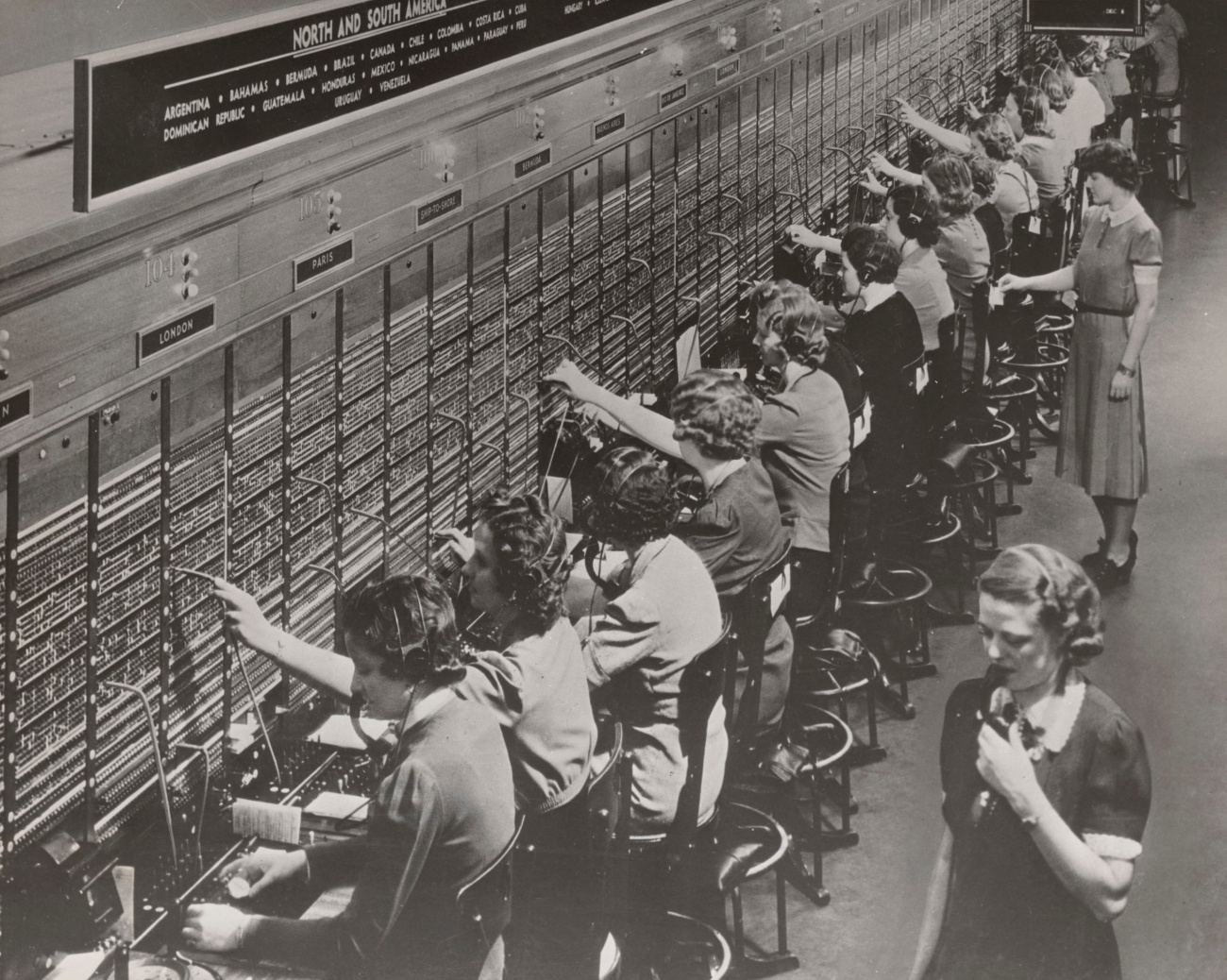
No Masks
This man who had a job painting chain link fences was absolutely covered in silver paint- no mask or protection back then. This was in the 1970s but few people in the decades before had any safety equipment for jobs that involved chemicals and solvents. It wasn’t until the 1990s that masks became an industry requirement for various fields of work.
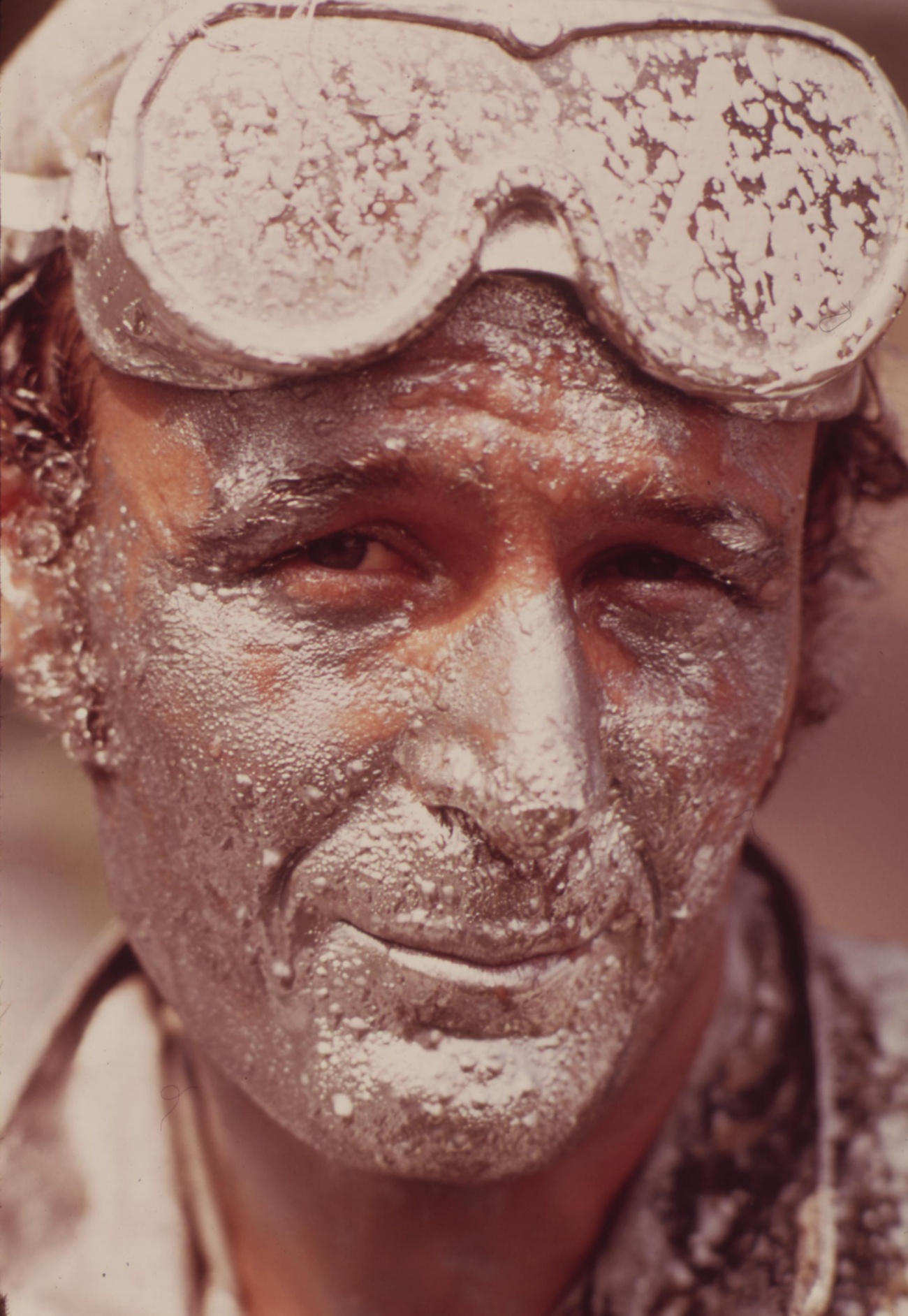
Lack of Labor Laws
Before labor regulations and school requirements children of poor families often started work as soon as possible. Those whose parents prioritized schooling might take them out of school only at harvest time, or only require them to work on Saturdays. Some children went to school as normal but then had to help their mothers do piecework on nights and weekends. It wasn’t until 1938 that child welfare laws required children to go to school and prevented them from working full time.
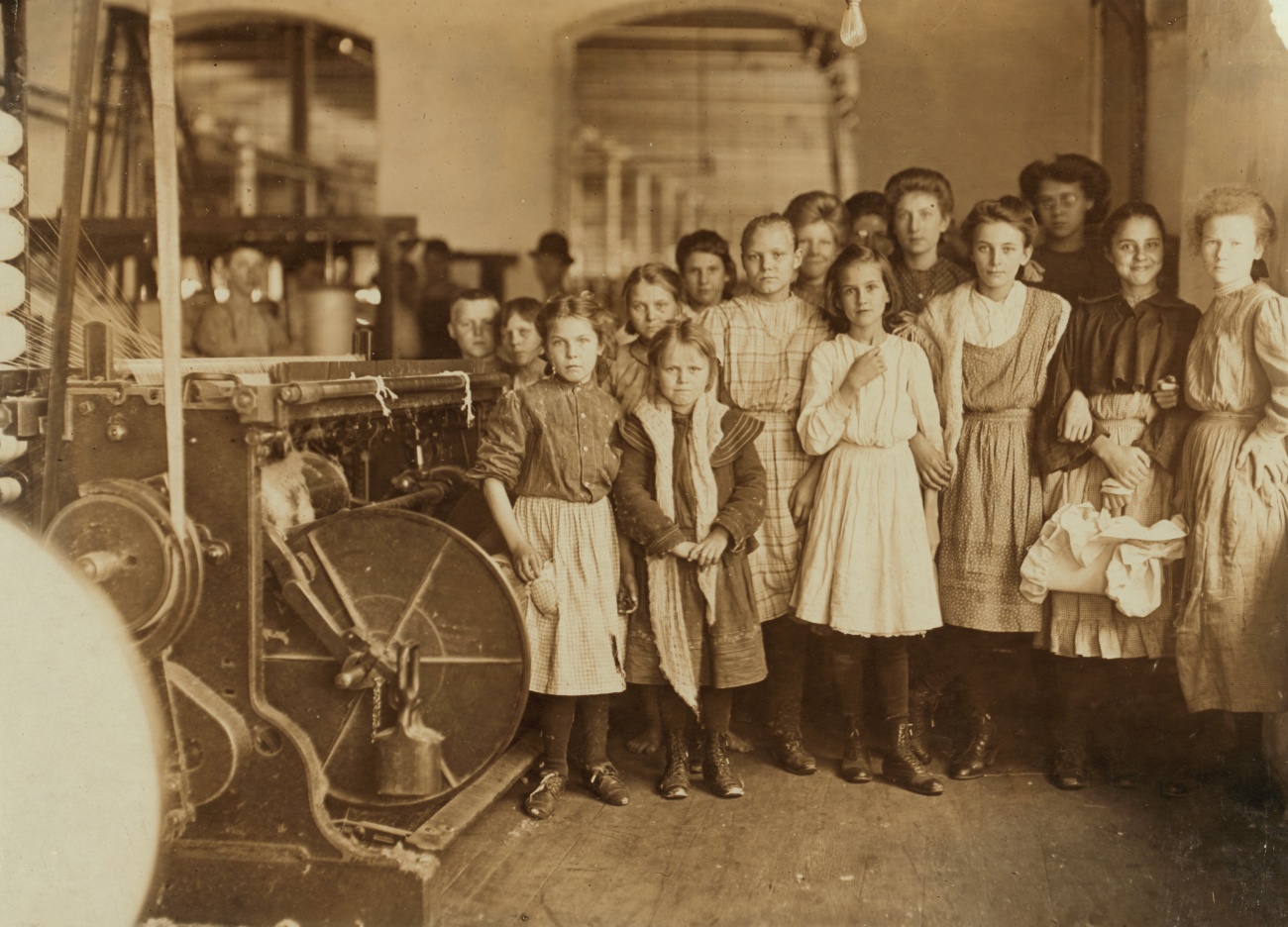
SKM: below-content placeholderWhizzco for DOT

